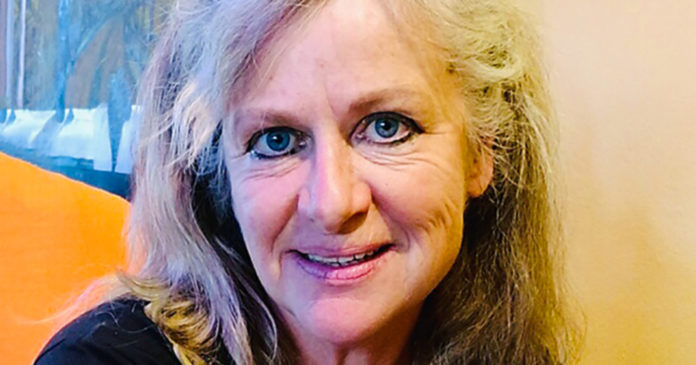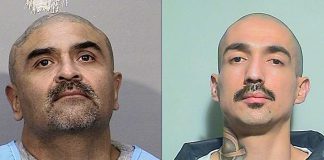During your wedding vows, in less than good health and in slightly better health and all that jazz, you are so caught up in the romanticism of the prospect of — hopefully — being together forever, you don’t really think about the sickness part of the vow. You just hope you will both stay healthy and go with that. And yeah, the older you get, the more that is not realistic. The medications and the syndromes and the sickness can become ever present in your world. They don’t tell you about that part.
Me: “Did you take your medications?”
Him: “What?”
Me: “DID YOU TAKE YOUR MEDICATIONS?” (Shouting and trying to use proper lip synch at the same time …)
Him: “Yeah.”
Me: “Did you take them with food?”
Him: “What?” (By now irritated … he’s watching one of his many shows on television with the volume up)
Me: (Shouting above the TV volume …) “DID YOU …?”
You get the picture. None of this is romantic and none of this is what you are imagining, as you make your vows to one another and look forward to years of wedded — and, you hope, healthy — bliss.
Move stage about 22 years forward in this house and the old man (I use that term affectionately) has a bad ticker, a problem heart, heart disease if you like. There is really no good way to couch his condition in a romantic way.
In March, he started to feel dizzy. I thought he was dehydrated, I thought he may possibly be pre-diabetic. (Don’t ever Google symptoms. If you are not a doctor, stay away from any determination of condition. Lesson learned!) I thought he might have some type of digestion issue, since he always ate, near flat, in his stretched-out recliner, watching his shows. Nope, none of the above. His faulty heart valve — that he was born with — could not even be blamed for the various cardiac issues, the like of which took the best part of five to six months to work through.
You start with the regular doc. Then the referral to the neurologist. No, he doesn’t have a brain tumor. Check. Then a cardiologist, actually two. They did a good clean out of his arteries. Check. Problem not fixed. Then onto another cardiologist for a pre-ablation determination. Yup, need that. Back to the other. On to the other. All kinds of tests through all of these procedures. Wait for insurance approvals. More waiting. And all of this during Covid, when the doctors don’t want to see anyone in person and they are really backed up with all the patients they haven’t seen in ions. What a challenge this has been!
The day of his first ablation arrived (top of the heart). During the times of Covid, you get to drop them at the hospital like they are catching an airport bus and then leave. That is a very strange feeling. No stressing out in the waiting room with other nervous families. No eating limp-ass food in the cafeteria with other peeps in the dark zone of their lives. Nope. You pull up, at a place where it seems everyone is catching an Uber to or from a concert. You drop off your patient and you leave.
The rest of the day is dark zone itself. I thought I was going to stress-clean, but I couldn’t even do that. Nurse Jackie called from the hospital a few hours later and told me he was coming around and would be able to come home later. And then, when he was more or less awake, he texted that he might be able to and then he said he wasn’t and then he was. The surgeon doesn’t call, so you have no clue if the op was a success or a resounding plonk like the others.
Having done your Uber-taxi bit at stupid o’clock in the dawn time, you are very tired and lying on your bed at this point, trying to stay awake in case the pick-up is on again. You are well in the knowledge that the insurance has not approved this hospital stay and may kick him to the curb at will, perhaps at midnight after the concert is over, as it were.
The final word is that he has lost too much blood — surgeon still AWOL — and that he has to stay in overnight. (Am I a bad wife for worrying that the insurance won’t cover this illicit stay?) You are exhausted. You still don’t know if he is any better, or what will be required next. The service of the medical industry has entirely gone out of the window — there is no hand-holding, no bedside manner. Just silence.
I get the patient home and he is very sore and very tired. He sleeps and sleeps. You imagine that this is nature’s way of fixing him and you encourage it. You try to be a good nursey-wife, even if, in the back of your mind, you don’t remember signing up for this and you know you are not very good or remotely qualified. You try not to wretch at the blood-colored bandages around the place and act willing when the dressing needs to be changed and the antiseptic cream applied. He asks you when your actual nursey-daughter is coming home and you wonder that too, since she actually did sign up for this type of work.
It’s a big old dark place you are living in post-surgery; hoping upon hope that he finally feels better and can get back on the big old horse of work here pretty quick. Also, more importantly, that he is fixed. You also hope, for your sake, that your nursing “skills” will not be further required for the indefinite future.
Wednesday, we go and see the man of the moment, the surgeon who did all this clever work to find out if it worked. Please spare a moment of silence for us old wedded folk and our hopes that a new man will soon emerge from the hands of his surgeon, cured and ready to play husband again.
Sickness and hospitalization are never fun; but they are especially not fun during the season of corona and all that resides within her fickle world.














